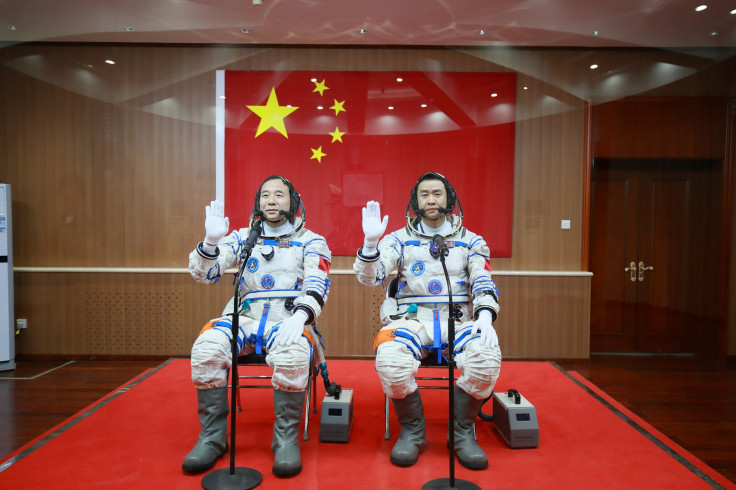China Space Program: Two Astronauts Return To Earth After Monthlong Tiangong-2 Stay

Two Chinese astronauts returned to Earth on Friday after completing the country's longest manned space mission on board the Tiangong-2 space laboratory. According to the state-run Xinhua News Agency, the return capsule of the Shenzhou-11 spacecraft carrying the astronauts Jing Haipeng and Chen Dong landed safely in the steppes of Inner Mongolia on Friday afternoon.
“Chinese astronauts of the Shenzhou-11 space mission opened the return capsule's hatch and are reported by the ground team to be in good condition,” Xinhua reported.
The astronauts spent 30 days in the space lab, where they carried out medical and scientific experiments, and tested the complex’s habitability.
The success of the mission “indicates that our manned space program has achieved major new progress and is the latest achievement in building a country of innovation and a world power of science and technology,” the ruling Communist Party’s Central Committee said in a congratulatory letter cited by the Associated Press. “It is the newest achievement of Chinese people in climbing the peak of the world.”
The next vehicle that docks with Tiangong-2 would be Tianzhou-1 — China’s first cargo spacecraft that is scheduled for launch in April 2017.
Since it sent its first satellite into orbit in 1970, China has been pumping large amounts of cash into its space program. It sent its first astronaut into space in 2003, and in 2011, it launched Tiangong-1 — the first operational component of the Tiangong program, which seeks to put a permanently manned space station into service by 2022.
The second component, Tiangong-2, was launched in September.
“Tiangong is a precursor testbed of capabilities. Building toward the large space station has always been the culminating goal of the Shenzhou program,” Joan Johnson-Freese, a professor at the U.S. Naval War College in Newport, Rhode Island, told CNN.
However, the country’s space ambitions extend far beyond sending astronauts to low-Earth orbits. In 2013, as part of its lunar exploration program, China launched the Jade Rabbit — its first lunar probe. By 2018, China aims to land its Chang'e-4 probe on the far side of the moon, and by 2020, it plans to send an unmanned rover to Mars.
© Copyright IBTimes 2024. All rights reserved.






















